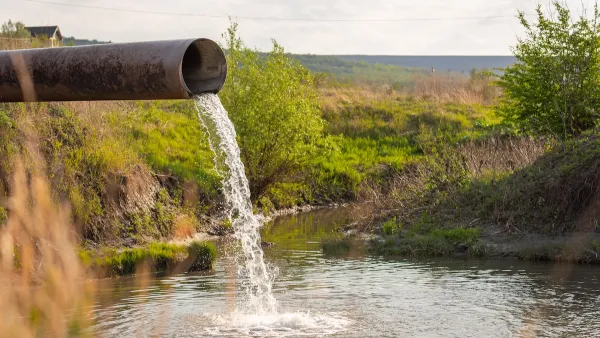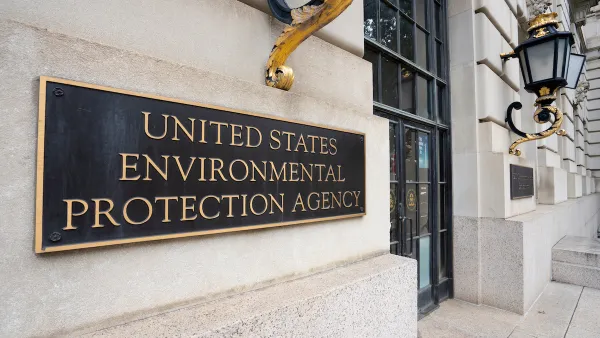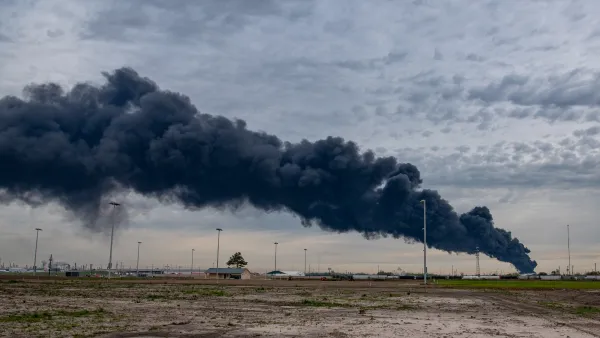The D.C. Water and Sewer Authority wants to revise a settlement reached eight years ago with environmental groups that would have seen the agency build three huge tunnels to manage storm water runoff. The Authority would like to build green systems.
Today, the Supreme Court will hear arguments in a case meant to establish who's to blame for polluted storm waters entering L.A.'s waterways. Within miles of the court, residents and officials in Washington are debating how to manage the same issue, with the D.C. Water and Sewer Authority seeking to back out of an agreement reached eight years ago to settle a federal lawsuit with local environmental groups. The Authority had agreed to build three giant tunnels to stop pipes from overflowing during heavy storms.
"But now," says reporter Darryl Fears, "the three-tunnel solution is in doubt, and activists, engineers and bureaucrats are arguing once again about the best path to cleaner waters. Although digging is underway for the first tunnel, D.C. Water wants to put the other two on hold and instead see whether rain gardens, retention ponds and grass rooftops can soak up as much storm-water runoff as the pipes can store."
"Among local environmental activist groups, a verdict on the request is already clear: Don’t do it. Some are enraged; others have expressed dismay about the proposal."
Although the green system has the potential for offering benefits beyond filtering storm water (such as cooling and beautifying the city), many are concerned about D.C. Water's request for an additional eight years to build and test an experimental green infrastructure project. "Opponents say that if the green pilot project wins approval, billions of gallons of sewage would pour into the Potomac and Rock Creek for eight years while D.C. Water conducts its tests."
The debate over the proposal has already cost the head of the D.C. Department of the Environment (DDOE), Christophe Tulou, his job after he expressed reservations about how well the green infrastructure project could perform.
FULL STORY: D.C. debates best path to cleaner waterways

National Parks Layoffs Will Cause Communities to Lose Billions
Thousands of essential park workers were laid off this week, just before the busy spring break season.

Retro-silient?: America’s First “Eco-burb,” The Woodlands Turns 50
A master-planned community north of Houston offers lessons on green infrastructure and resilient design, but falls short of its founder’s lofty affordability and walkability goals.

Delivering for America Plan Will Downgrade Mail Service in at Least 49.5 Percent of Zip Codes
Republican and Democrat lawmakers criticize the plan for its disproportionate negative impact on rural communities.

Test News Post 1
This is a summary

Test News Headline 46
Test for the image on the front page.

Balancing Bombs and Butterflies: How the National Guard Protects a Rare Species
The National Guard at Fort Indiantown Gap uses GIS technology and land management strategies to balance military training with conservation efforts, ensuring the survival of the rare eastern regal fritillary butterfly.
Urban Design for Planners 1: Software Tools
This six-course series explores essential urban design concepts using open source software and equips planners with the tools they need to participate fully in the urban design process.
Planning for Universal Design
Learn the tools for implementing Universal Design in planning regulations.
EMC Planning Group, Inc.
Planetizen
Planetizen
Mpact (formerly Rail~Volution)
Great Falls Development Authority, Inc.
HUDs Office of Policy Development and Research
NYU Wagner Graduate School of Public Service





























